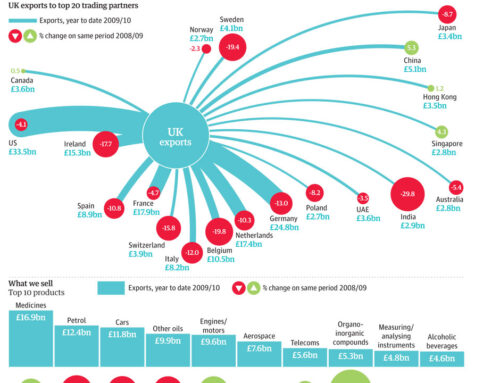Five top tips for SMEs on how to navigate customs around the world
International trade is still one of the fastest growing areas of the world economy. If you are working for a Small and Medium Sized Enterprise (SME) and are reading this, you have already taken the first step towards getting the most out of this growth.
Having a product that people want to buy is a fantastic start. If you are ready to take it to the next level and you want to export globally, you need some sound understanding on how to work with customs.
FedEx Express have drawn up this short guide to get you off to a flying start so you can navigate customs around the world with ease. These tips are designed to support you in getting your product to market quickly and efficiently, no matter where in the world you want to go.
The most essential piece of advice to you is that: ‘
INTERNATIONAL TRADE COURSE
1. Understand the process
Customs have an important role to play in today’s world. They protect the health and safety of a country, its citizens and its economy as a whole. They collect duties and taxes and of course protect the borders against potential security threats and against counterfeit goods.
- Check out the differences between countries, you’d be surprised how big they can be!
Customs procedures are in constant flux and each product/commodity has different rules associated with it. The European Commission’s market access database is a good starting point where you can get a good overview of the differences between countries:
http://madb.europa.eu/madb/indexPubli.htm
Generally speaking, customs in emerging market economies tend to use a higher level of official documentation than for example in Europe. Working with their customs departments requires more steps, processes and paper forms. It usually works on a transactional basis (shipment by shipment).
There are also typically higher levels of physical inspections involved. In comparison, countries like the UK, USA and many within the EU have been investing heavily into automation and building relationships with trade bodies for a much longer period of time, this allows for faster release of the physical shipments and less physical examinations.
2. The “passport” for your shipment
Regardless of the system you are faced with, the efficiency of the process depends in large part on having accurate information. For example, you should start thinking about the kinds of documentation you will need to provide. If you can complete this next step accurately then you are well on your way to success-my other points are just secondary in nature:
- Think of preparing for your shipment as you would prepare for a holiday
- Take note of as much detail as you can
Depending on the destination you may also check the country’s website to make sure there are not any security warnings or any other conditions you need to meet. All you need to do is a little research before you ship your products to the country in question.
Always try to provide full details with each shipment, including certificates, licenses, etc. The customs officer on duty will not know you or your business. The documents you provide will help customs do their job.
- Be as descriptive as possible when filling in the commercial invoice as this document is probably the most important paperwork for international shipping.
- Commercial Invoice = the passport of your shipment.
To avoid delays, everything contained in it must be correct and consistent.
Here is a useful run-down of some of the keywords you need to understand in order to fill out the commercial invoice correctly.
- “Consignee” is the recipient, the person to whom a shipment is being sent. If the goods are sent to someone other than the person they are sold to, you need to state this clearly
- “Sold To” is the person who will pay for the goods if he/she is not the recipient. This person usually becomes the “Importer of Record” in the destination country.
- Aside from their usual contact details, such as name, address and telephone number and e-mail address, the VAT or tax number, as well as the customs registration number (EORI) for the importer, are becoming increasingly important for customs.
- “Shipper” is the sender, the person with whom the shipment originates.
- “Value” to be declared for customs purposes is the price paid or payable for the goods by the buyer to the seller of the goods.
- Genuine samples are not subject to duties, if they fall below a certain value – depending on destination country. The commercial invoice and air waybill must state “Sample supplied free of cost,” and contents need to be marked as samples.
- A “description of the contents”must always include:
- What the product is
- In other words: think carefully about the terms you use, e.g. when you say cap for example do you mean baseball, bottle, hub?
- What material it is made of
- Schedule B or HTS code (these are recognised around the world)
- If you provide the first 6 to 8 digits of a tariff number this will help in addition to correctly classify your products with customs in the destination country
- Intended use
- Country of manufacture
- Parts or serial numbers (if applicable)
- Quantity and unit of measure
- Value, per unit and in total
- What the product is
- “Country of Origin” is the country from which the products originate. Make sure the necessary documentation is added when you want to claim duty advantages due to origin.
You must also update the product database ensuring that the information provided is complete and of a high quality (including details about your customer). Also consider dealing with your chosen express transportation provider electronically.
While all of the above may seem like a lot to take in at the start, spending the time to get the necessary information will help you ensure a smooth exporting experience.
If the initial preparation is thorough and done correctly, each individual transaction or shipment will pass through customs with the fewest possible delays.
3. Get to know the local markets and local customs rule
- Think like a local – the more first hand information you have the better
To achieve real competitive advantage, you must be able to develop intimate knowledge of the local environment and ensure you meet the requisite local standards. Many companies, such as FedEx, already have documentation online to help companies like yours build up their local knowledge on customs but nothing beats visiting the country itself. Are there any country-specific events you could attend? Have you any in-country contacts who could share relevant knowledge? Is there a local SME organization you can join to get advice?
4. Expand slowly
- Slow and steady wins the race
Expand your business at a pace that you are happy with and make sure you feel absolutely comfortable with taking your product to the international level.
Ensure that whatever the approach, you expand slowly, one country at a time. It is important to adopt a steady, more sustainable and controlled approach to growth. Ensuring you are 100% ready before entering new markets will enable you to better navigate customs and achieve real and lasting commercial success around the world.
5. Find a trusted global express transportation provider
Express carriers (integrators), such as FedEx, are not only supposed to satisfy your transport needs but often have integrated customs brokerage operations around the world. These companies are among the largest customs brokers in the world and their local customs expertise in each country is outstanding.
In the world of customs clearance, local expertise and local experience go a long way, often making the process much quicker and straightforward.
Never before has global trade been so accessible to SMEs. The fact that you have communications technologies at your fingertips combined with the global transportation expertise of a company like FedEx, allows you to focus on your core business, conquer new markets and build a higher level of compliance. So now get out there and get involved: there are many opportunities just waiting for you.
 Fedex gives SME’s the benefit of their wide experience in the area of logistics and transportation
Fedex gives SME’s the benefit of their wide experience in the area of logistics and transportation
By Harald Schoenfelder, Managing Director, Global Trade Services. FedEx Express EMEA
————–

International Trade Course: This course is designed to provide the learners, and those operating within International Trade, an opportunity to broaden their understanding of global trade issues, and to gain a clear understanding of the processes and practicalities of International Trade.





Leave A Comment
You must be logged in to post a comment.